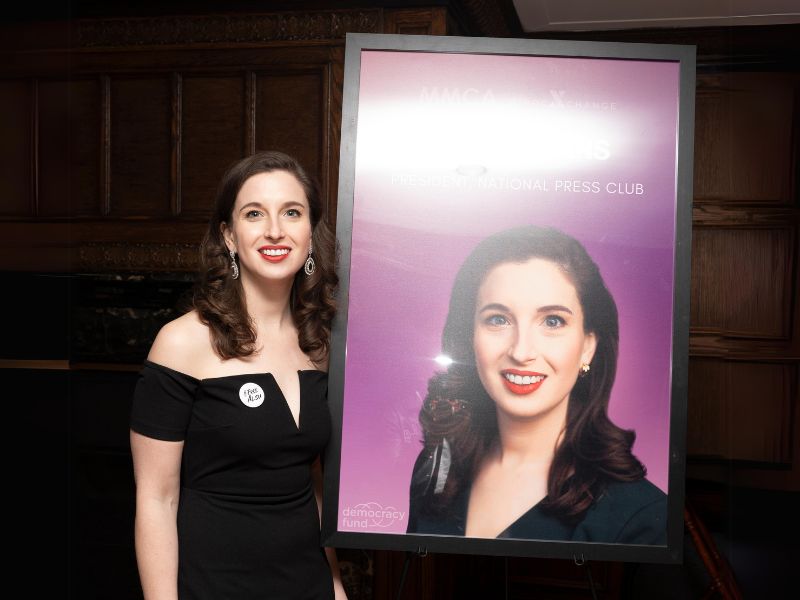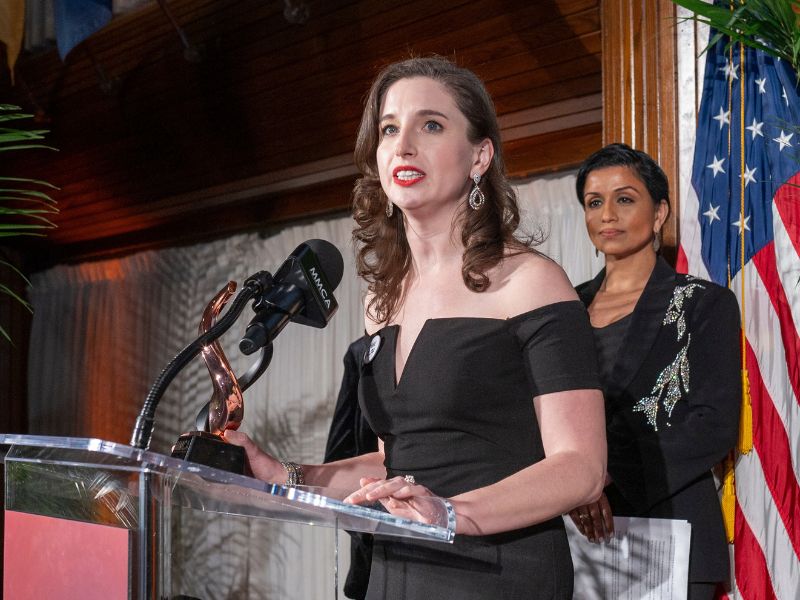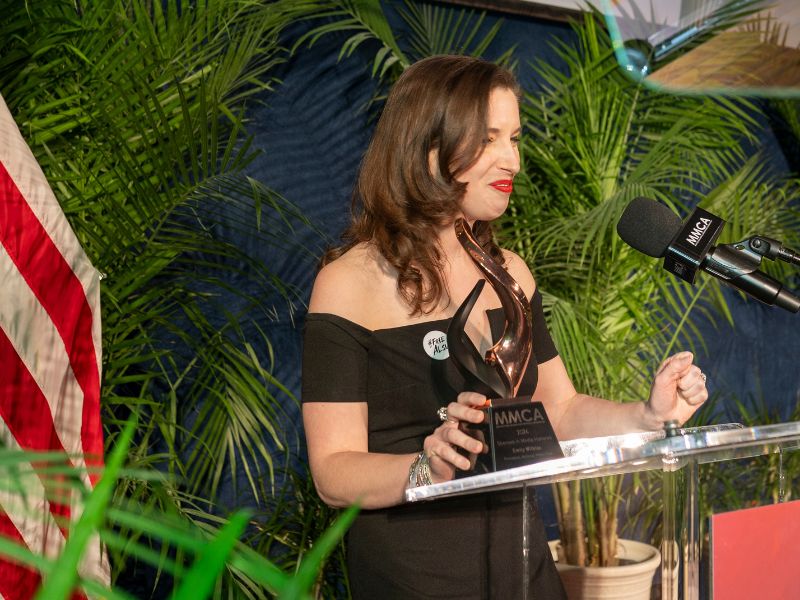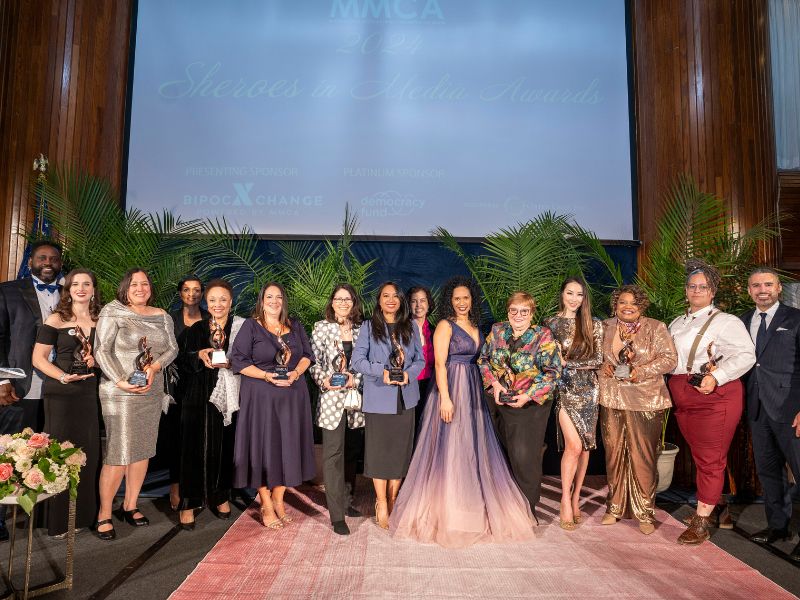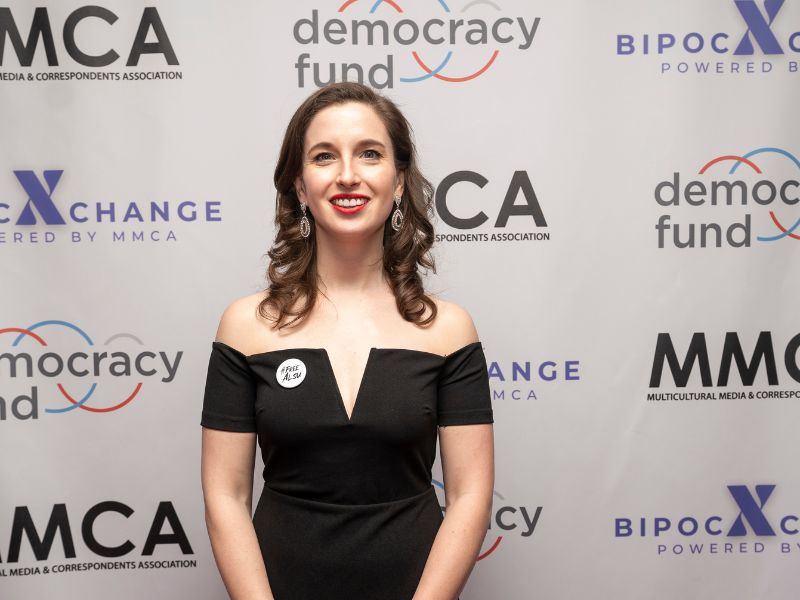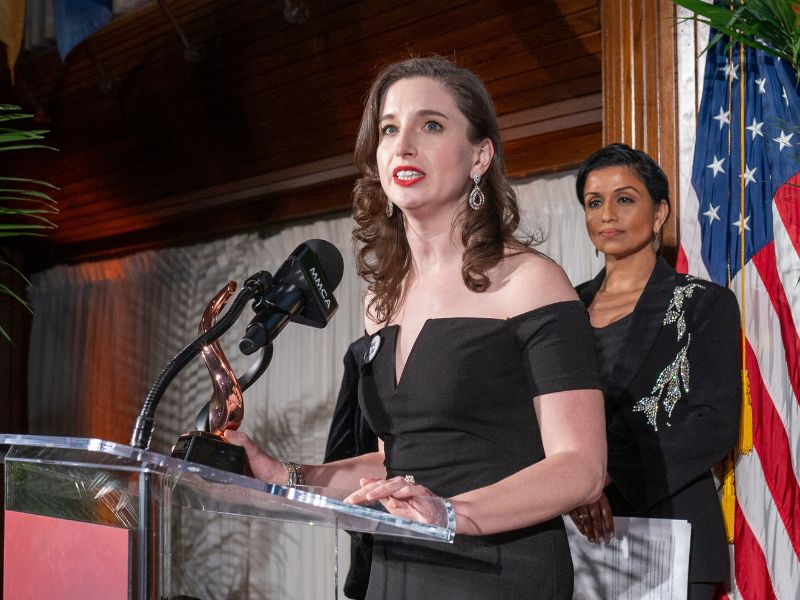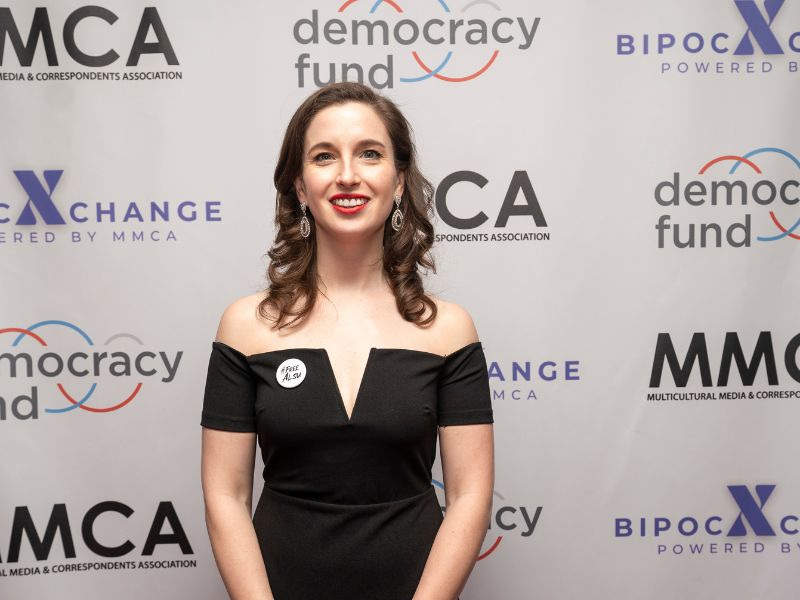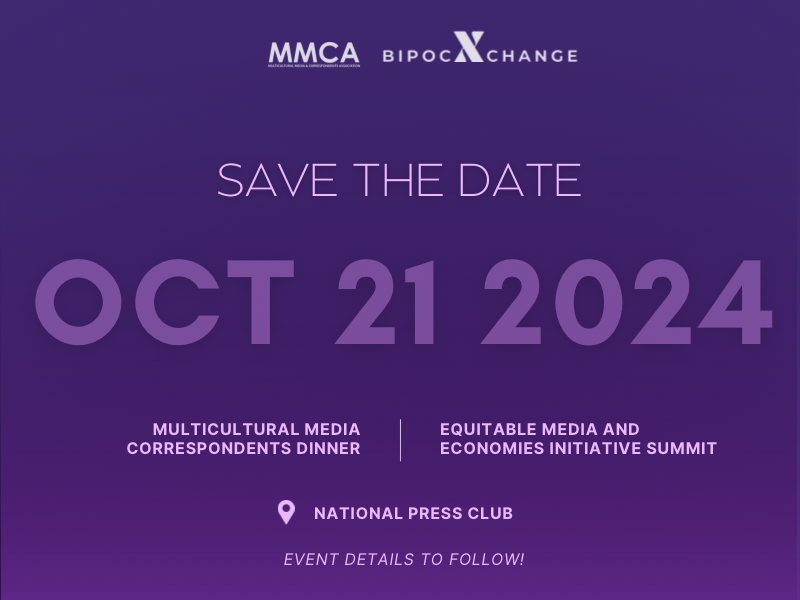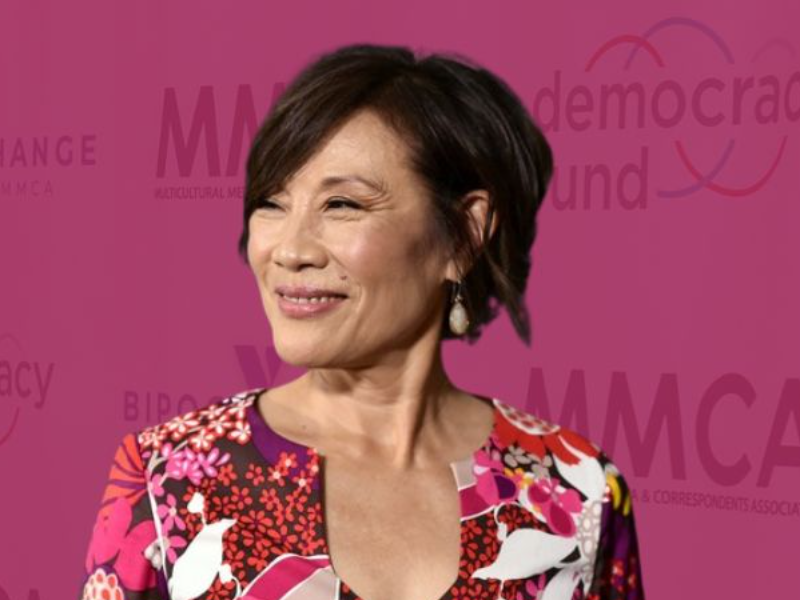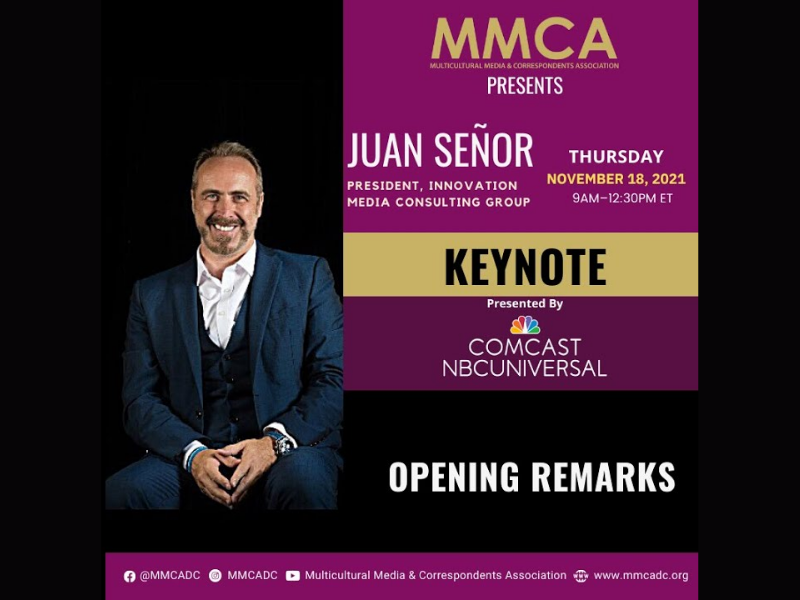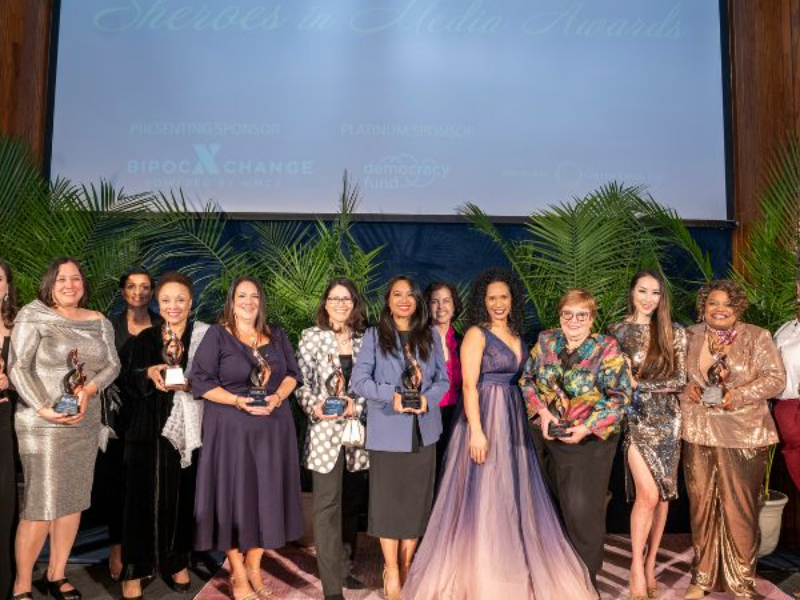National Press Club President Emily Wilkins Prioritizes Diversity
Publishable article by Richard Leiby courtesy BIPOCXChangeFounded more than 100 years ago, the National Press Club has been an enduring D.C institution ---and watering hole -- for reporters looking to entertain themselves and their sources and hear from leaders worldwide,
And for many years the historic club was famous for being as non-diverse as they come – open only to white men, for example, until that barrier fell in 1955. For even longer women were excluded -- barred until 1971, when the press club members finally voted to end the sexist policy,
The club has since elected several women presidents, including, recently, four in a row: The latest one bestowed with that honor is CNBC correspondent Emily Wilkins -- who also happens to be the youngest female president. (She also puts it in terms of being a millennial.)
View MMCA 2024 Sheroes in Media Awards Acceptance Speech
(Photo Credit MMCA)
Today the club has more than 3,000 members -- including journalists, communications professionals and sources. Its core missions -- and Wilkins's concerns-- hew to issues such as media access, disinformation, diversity, journalist safety (including those harassed for their coverage) and, significantly, the fate of reporters held captive throughout the world.
The club remains a magnificent venue for members, but Ms. Wilkins points out, "we're not just here for the bar." Yes, it is a place "to come and exercise, to come and get a drink with a friend or a source," -- but members also advocate strongly for press freedom and show solidarity with captive journalists: Austin Tice, a freelancer whose clients included The Washington Post, Evan Gershkovich of The Wall Street Journal; and Alsu Kurmasheva with Radio Free Europe/Radio Liberty.
"These are people who have done absolutely nothing wrong. They've simply reported --and journalism, as we know, is not a crime," Ms. Wilkins says.
View MMCA 2024 Sheroes in Media Award Interview Clip (Photo credit MMCA)
Beyond such high-profile cases, another concern for the club are those known as exiled reporters. "Think reporters who, because of their reporting in their home countries, they've been threatened with violence. They've been harassed, they've had their families threatened, and they've had to come to the U.S. Many of them [are] seeking legal status. They don't have a job, they don't have resources.
"And so what the club is trying to do is reach out and offer that hand, that branch, that lifeline and say, 'Hey, come be a part of our community. We support reporters all over the world. We support you, and we want to help you now in your time of need."
At home, problems persist in terms of how journalists are treated, particularly during the political season -- and in highly divisive races. Wilkins knows the territory: She has covered Congress and worked at news outlets including Bloomberg and Roll Call.
"We obviously have a very big presidential race coming up this year; we know in the past there have been some concerns in terms of access, in terms of how reporters are treated," she says. "We started to see something similar this year with reporters not being let into events where usually they have the ability to go.
"And so we at the club are going to be an advocate for these domestic reporters. We are going to be calling out cases where campaigns are not treating reporters the way that they should be treated.
To her it's simple: "If we don't stand up and press for press freedom, and we don't press for access, and we don't press to be there and in the room, and to have rights when it comes to FOIA and Sunshine laws those things will be taken away from us."
Initially founded as a private club -- and literally an old boys' club -- the National Press Club now seems destined for more change in the composition of its membership and leadership. "We need to do more in terms of racial diversity at the National Press Club," Ms. Wilkins says, to ensure "we are not leaving anyone behind."
"I know white women have been guilty of doing that in the past, that we don't always make sure that we're reaching back to our Black and our Hispanic and our Asian sisters and pulling them along with us. That really needs to happen."
Of course it's never too late.
Publishable article by Richard Leiby courtesy BIPOCXChange

